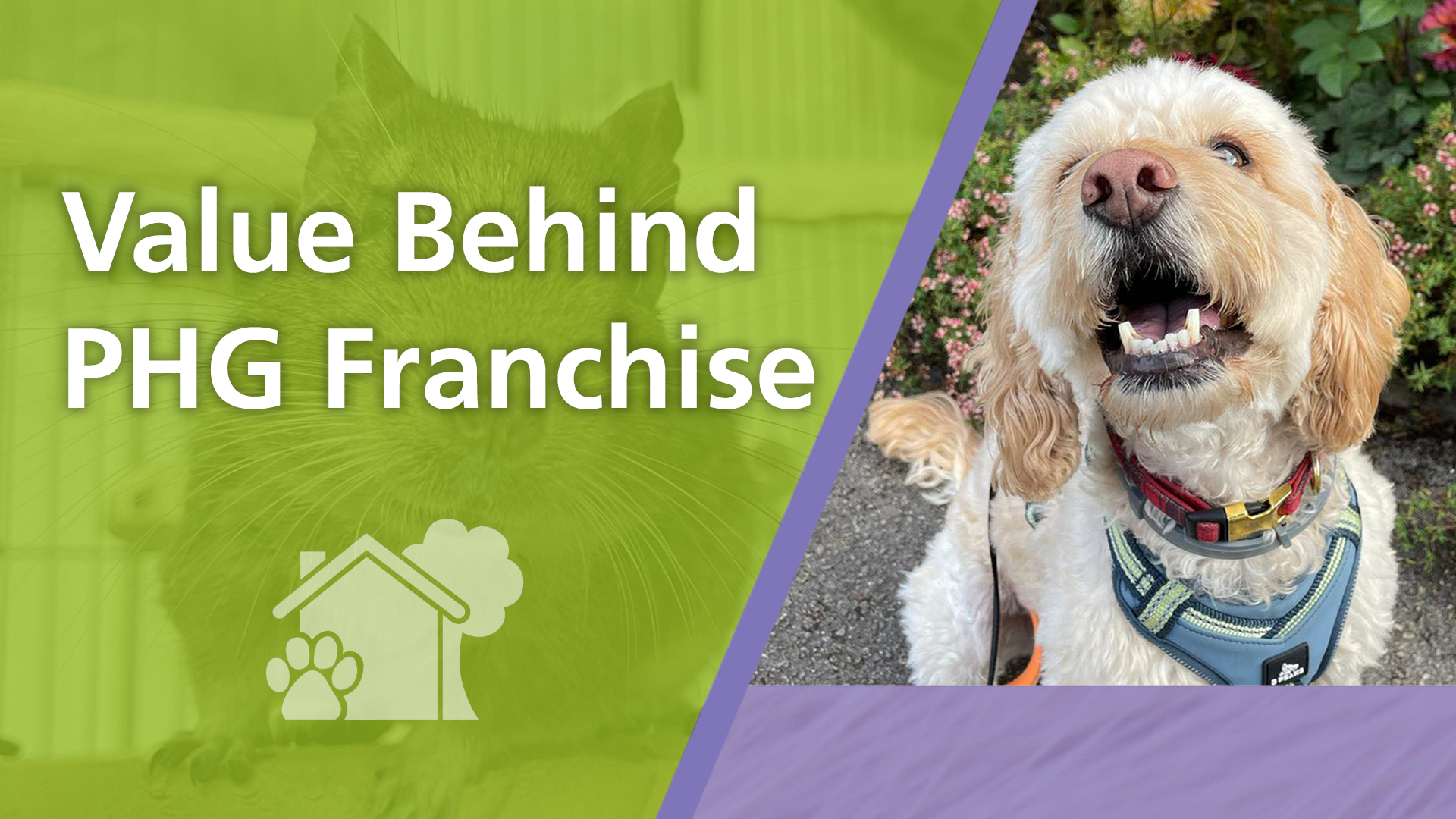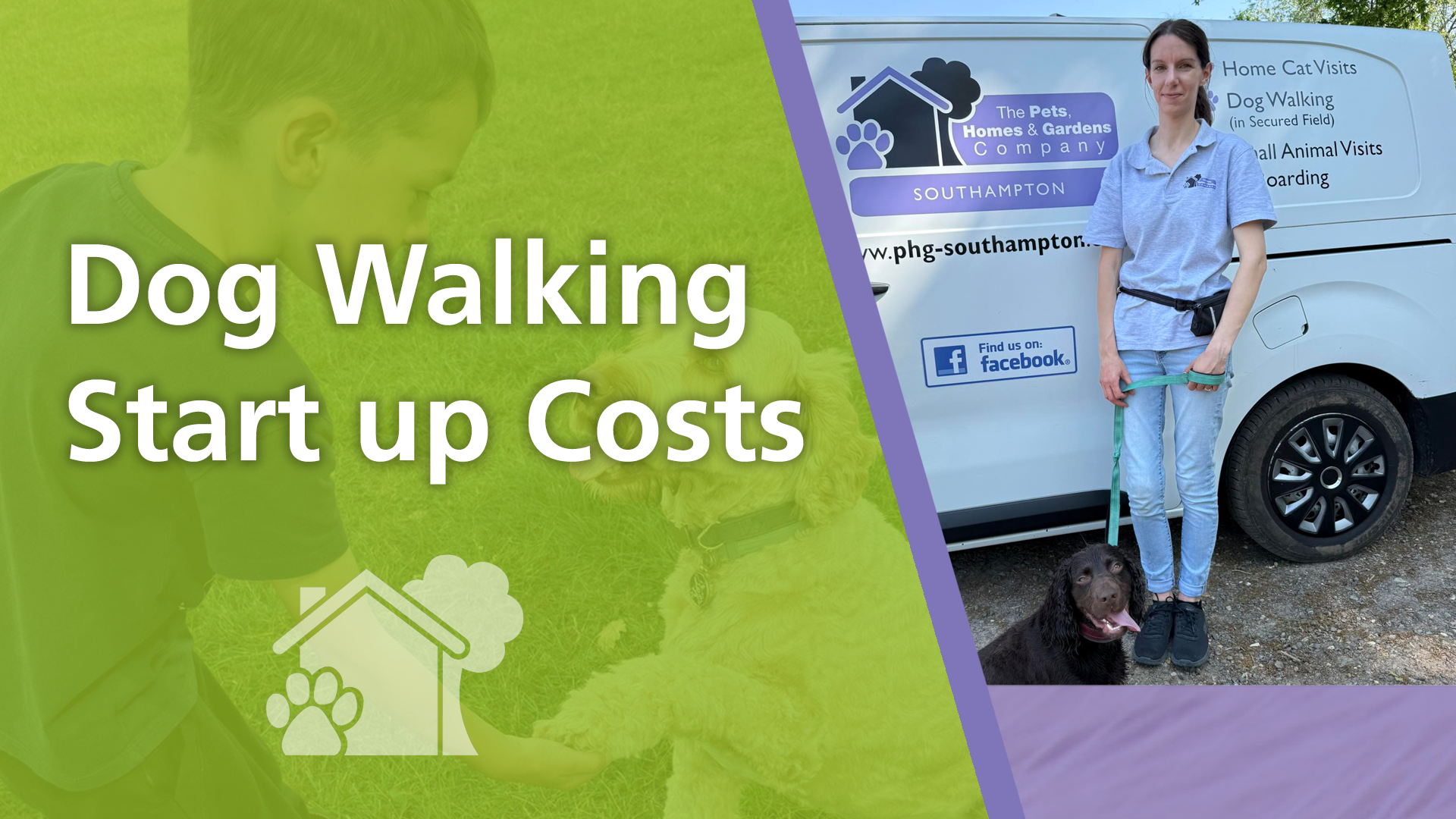
Hey, Ritchie here.
So you're thinking about turning your love of dogs into a proper business? Brilliant! There's genuinely never been a better time to enter the pet care industry in the UK. Starting a professional dog walking business is an exciting venture, though it does involve more moving parts than many people initially expect.
Notice I said professional dog walking business. There's a difference between doing the occasional favour for friends and building a sustainable, profitable business that provides you with a proper income.
In this guide, I'm going to walk you through exactly what it takes. By the end, you'll have a clear picture of what's involved and can make an informed decision about the best route forward for you.
The Five Pillars of a Professional Dog Walking Business
After working in this industry for years and watching countless people try (and unfortunately, sometimes fail) to build successful pet care businesses, I've identified five absolutely critical components. Miss any one of these, and you may struggle. Get them all right, and you're onto something special.
Let's dive in.
1. Creating a Brand That Actually Stands Out
In most UK towns and cities, there are already dozens of dog walkers. So the question isn't "Can I start a dog walking business?" but rather "Why would someone choose me over everyone else?"
This is where branding comes in.
What Professional Branding Actually Means
Your brand is your business identity. It's how potential clients perceive you before they've even met you. Think of it as your business's personality, visual appearance, and reputation all rolled into one.
Your Unique Selling Proposition is where it starts. What makes you different? Perhaps you're the eco-friendly option, the breed specialist who understands anxious rescues, or the premium service providing GPS-tracked walks with detailed photo updates. You need to answer "Why should I choose you?" in one clear, compelling sentence.
Your visual identity matters more than you might think. Your logo needs to work on your van/vehicle, social media platforms, business cards, and website. Your colours and typography should be consistent everywhere. And those photographs? High-quality images of you confidently interacting with dogs.
Then there's your tone of voice. Are you warm and chatty? Reassuring and professional? Fun and energetic? This needs to flow consistently through your website, social media, emails, and phone conversations. Consistency builds trust and recognition.
Your online presence ties it all together. This includes a proper website, cohesive social media profiles, a Google Business listing, and a dedicated email account.
The Time and Money Reality
Building a strong brand is a time-intensive process that typically spans several weeks from start to finish. You'll need to develop your strategy, work through logo design iterations (DIY with Canva or hiring a designer), create your website while learning platforms like WordPress or Wix, and produce marketing materials including business cards and vehicle signage.
Budget realistically: £400-£1,200 if you're doing most of it yourself, or £1,500-£4,000 for professional support.
The truth? This phase usually takes longer than people expect. Getting everything aligned and professional-looking requires attention to detail and multiple iterations. But it's worth getting right because your brand is working for you 24/7.
2. Delivering Exceptional Customer Service
In the pet care industry, good customer service is pretty standard. Everyone's friendly, everyone loves dogs. To actually succeed, you need to be exceptional. This means going above and beyond, consistently.
What Exceptional Actually Looks Like
For the pets, it means detailed records of each dog's preferences, fears, medical needs, and quirks. It's about customised care plans, recognising behaviour changes, and building genuine relationships with each animal.
For the owners, it's complete reliability and trust, regular communication, photo updates after walks or visits, and clear emergency protocols. It's being the dog walker and pet sitter they trust completely. Not only are they putting their trust in you to look after their beloved pets, but you will also have the keys to their property and that's a big deal!
The Systems You Actually Need
Providing excellent service for five clients is pretty straightforward. Maintaining that standard for twenty-five clients? That requires proper systems.
You'll need a solid client onboarding process covering initial consultations, meet-and-greets, agreement forms, emergency contacts, vet details, and key collection procedures.
Here's the reality: Building these systems isn't something you do in a weekend. It's an iterative process that develops over your first several months of operation. You'll refine your procedures as you encounter different scenarios and learn what works best for your business model. But the time you invest here directly determines how smoothly your business runs as you grow.
3. Getting Your Finances and Accounts Properly Sorted
This is where many can stumble. You might be brilliant with animals and still struggle in business if you don't get the money side right.
The Daily Financial Discipline
Every single day, you need to record your income received, expenses paid (petrol, equipment, insurance, marketing), invoices sent, and outstanding customer payments. This isn't optional as it's the difference between knowing whether you're actually making money or just keeping busy.
You'll need to get comfortable with software like QuickBooks or FreshBooks, or at minimum, a properly organised Excel system. Keeping it all in your head or on random bits of paper is not advisable and will certainly make your annual tax return a very tricky, time consuming job.
Understanding Your Numbers
Beyond basic bookkeeping, you need to understand which services are most profitable, your actual profit margins, seasonal income trends, and how inflation affects your costs and pricing. These insights tell you what's working and what needs to change.
The tax side is crucial. You're responsible for self-assessment tax returns, National Insurance contributions, and potentially VAT if you exceed the threshold. Many first-time business owners get caught out badly by not setting aside enough money for their tax bill. Your accountants should be able to advise on the percentage of income to set aside.
Getting Help (And What You Still Do Yourself)
An accountant can help with your annual tax returns. But here's what they can't do: manage your day-to-day finances. You still need to provide them with accurate, organised records. The daily financial awareness is your responsibility, not theirs.
Monthly software costs run around £10-£30 for accounting tools. It's money well spent for the peace of mind and amount of time it saves.
4. Getting the Right Tools and Technology in Place
Technology can make your life dramatically easier. Or it can become an expensive, confusing mess if you're not strategic about it.
The Essential Tech Stack
You'll need a reliable mobile phone with good signal in the area you cover, a dedicated email account, and reliable scheduling tools. Professional pet sitting software like Time To Pet or Pet Sitter Plus makes life significantly easier as you grow.
Invoicing will ideally be automated because the manual process is very time consuming.
For marketing, you'll want social media scheduling tools (Meta Business Suite is free, or paid options like Hootsuite), email marketing platforms (Mailchimp has a free tier), and website hosting that's reliable.
Don't forget data security. GDPR compliance is a legal requirement. So you must ensure that all paper records and electronic records containing any personal information are properly secured. You will need Face ID enables on your smart phone, premium antivirus software stored on your computer and all keys and paperwork to be securely locked away.
The Learning Curve Reality
Each tool comes with its own learning curve. You'll spend time watching tutorials, reading help articles, and occasionally feeling frustrated before things click. Setting up basic systems can be done relatively quickly, but becoming truly proficient and getting everything working together smoothly is a process that unfolds over several months.
Monthly costs typically run £50-£150 for the core tools you'll need, plus occasional one-off expenses for setup or additional features.
5. Marketing for Sustainable, Long-Term Growth
Even the most skilled dog walker needs clients. Effective marketing is what connects your excellent service with the pet owners who need it.
The Marketing Channels That Actually Work
Local SEO is your foundation. Optimise your Google Business Profile, generate reviews (they're gold), and create blog content targeting local searches. When someone in your area searches "dog walker near me," you want to appear.
Social media requires consistent effort. Choose platforms where your ideal clients actually are (usually Facebook and Instagram), create engaging content regularly, and genuinely engage with your community. Paid advertising can accelerate growth, but organic engagement builds lasting relationships.
Content marketing establishes your expertise. Blog posts, video content, helpful guides and email newsletters will position you as the knowledgeable pet care professional. It takes time to build momentum, but the compound effect is powerful.
Don't overlook traditional marketing. Leaflets through doors in target neighbourhoods, partnerships with local vets and pet shops, networking at community events. These old-school methods still work, especially when combined with your digital presence.
Build a referral system from day one. Happy clients are your best marketers. Blow them away with your service and they will become ravings fans who will not hesitate to recommend you to their friends and family.
Understanding the Broader Picture
Here's something worth knowing: according to the UK Office for National Statistics, up to 60% of independent businesses face significant challenges within their first three years.
Common stumbling blocks include underestimating startup costs, struggling with financial management, ineffective marketing, underdeveloped systems, inconsistent branding, and difficulty managing growth while maintaining quality.
The Real Time Commitment
Be realistic about what you're taking on. During your first year especially, you're juggling multiple demanding roles simultaneously: business administrator, marketing manager, accountant, customer service representative, and dog walker. The actual dog walking is often just a portion of your total workload.
And during this period, your income is building gradually while you establish your client base and refine your systems.
Different Paths to the Same Destination
The pet care industry is fantastic, the work is rewarding, and yes, it can absolutely be profitable. Many people successfully build independent dog walking businesses and thrive.
But having outlined what's involved, here's a question worth considering: Would you prefer to develop all these elements yourself over time, or start with proven systems already in place?
This is where the franchise model offers a different approach.
According to the British Franchise Association, approximately 90% of franchises succeed compared to that 40-60% success rate for independent startups. Why? Because franchises provide established branding, proven marketing systems, professional technology setup, comprehensive training, ongoing support, and a proven business blueprint from day one.
The PHG (Pets, Homes & Gardens) franchise, for example, provides all of this from the outset. You receive a fully-branded website, managed Google Ads campaigns, client agreement forms, email templates, invoicing tools, comprehensive training, and ongoing business support.
Rather than spending 6-12 months building infrastructure while trying to attract clients, you could be operational within weeks, focusing on delivering exceptional pet care and building relationships from the start.
Making Your Decision
Starting a professional dog walking business is definitely achievable. It requires:
- Significant time investment, particularly in the first year
- Financial investment of several thousand pounds
- Business acumen or commitment to developing it
- Strong organisational skills and a willingness to learn software and systems
- Persistence and adaptability
Many people successfully build independent businesses. The key is understanding what's involved upfront so you can plan accordingly and set yourself up for success.
Our franchise route offers structure and support and, as at November 2025, the joining fee is only £2,995. If you do join PHG (and we are picky on who we select) you still need dedication and work ethic, but the infrastructure and blueprint is already built.
Neither route is inherently "better", they simply suit different people depending on circumstances, skills, resources, and preferences. The independent route offers complete autonomy; the franchise route offers proven systems. Both can lead to successful, profitable businesses.
Ready to Explore Your Options?
If you're still reading, and curious about how a PHG franchise could work for you, the next step is having a proper conversation on potential next steps.
Get in touch:
📞 02382 254562
📧 info@petshomesandgardens.co.uk
We're also happy to connect you with existing PHG franchisees who can share their experiences and perspectives.... sometimes it helps to hear from someone who's been where you are now.
Taking time to understand your options and ask the right questions now will help you make the best decision for your future.
Get Your Free Info Pack









